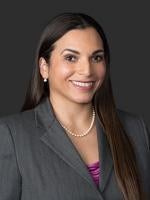On May 20, 2019, the Securities and Exchange Commission (SEC) issued an order for an application for exemptive relief to Precidian Investments (Precidian) for its proprietary ActiveSharesSM actively-managed, non-transparent exchange-traded fund (ETF) structure. The exemptive relief is from several sections of the Investment Company Act of 1940. The final order is expected on or about May 6, 2019. The ActiveShares model is the first non-transparent active ETF to which the SEC has granted relief,1 and it has taken Precidian five years of negotiations with the SEC to obtain it.
The ActiveShares structure is a new type of active ETF that allows its investment advisers to shield their proprietary investment strategy and process from investors and the public. Generally, as a condition of their exemptive relief to operate as ETFs, ETFs must disclose their portfolio holdings daily, publicly exposing an active manager’s trading strategy. ActiveShares ETFs, however, will only disclose daily holdings to “authorized participant representatives,” unaffiliated broker-dealers acting on an agency basis using confidential brokerage accounts, a new role within the ETF universe. Authorized participant representatives are the only entities apart from the fund’s investment adviser and custodian to see the fund’s underlying positions. The confidential brokerage accounts will be used to acquire and dispose of the underlying basket of securities on behalf of an authorized participant. This structure allows the investment advisers of ActiveShares ETFs to keep their strategies confidential.
To gain this privacy, ETFs using the ActiveShares structure must comply with some requirements that differ from a typical active ETF as well as additional requirements not imposed on typical active ETFs.
Other ETFs are required to publish a verified intra-day indicative value (VIIV) every 15 seconds, based on portfolio holdings, providing a consistent intra-day price to the market. To ensure there is enough market data to allow for efficient arbitrage by authorized participants, an ActiveShares ETF will have to provide the market with the underlying value of an ETF share at one-second intervals throughout the day. Also, to establish accurate calculation of the VIIV, ActiveShares ETFs are limited to holdings listed on U.S. exchanges that trade during the same hours as the ETF. The typical creation unit size for ETFs is 25,000 shares or more, but creation units for ActiveShares ETFs will only be 5,000 shares or more.
An ActiveShares ETF must also include a legend explaining the non-transparent nature of the ETF in any prospectus, summary prospectus, website, or marketing materials. Such ETFs must also voluntarily comply with Regulation Fair Disclosure (Reg FD), even though Reg FD does not apply to ETFs. Investment advisers of ActiveShares ETFs must also require authorized participant representatives and certain other service providers to agree to comply with the requirements of Reg FD. Lastly, for at least the first three years following launch, the board of an ActiveShares ETF will be required to (i) meet promptly to consider action if, for 15 days in a row or 30 or more days in any quarter, the ETF’s premium/discount or bid/ask spread exceeds 1% and (ii) consider on an annual basis, regardless of the level of the premium/discount and bid/ask spread, whether to adopt appropriate measures to reduce the premium/discount and/or bid/ask spread, whether the ActiveShares ETF's shareholders are being harmed, and the continuing viability of the ActiveShares ETF.
Precidian asserts that the ActiveShares structure is patent-protected, so managers considering this structure will be required to enter into a licensing agreement with Precidian directly. The relief granted to Precidian allows investment advisers who have licensed the ActiveShares structure to apply for a separate exemptive order that incorporates by reference all the terms and conditions of the Precidian application and any amendments thereto.
1 In February 2016, the SEC approved a semi-transparent ETF when it granted NextShares approval to license a semi-transparent exchange-traded managed fund model.



 />i
/>i
